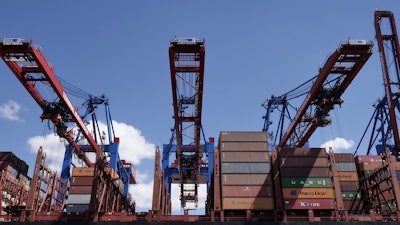
Negotiations between the International Longshoremen’s Association (ILA) and the United States Maritime Alliance (USMX) have reached an impasse, raising the likelihood of a coast-wide strike at Atlantic and Gulf Coast ports beginning October 1st. The labor dispute, which has dragged on for nearly two years, has yet to produce a new Master Contract Agreement for the tens of thousands of ILA members working from Maine to Texas.
USMX announced that despite repeated attempts to schedule meetings, the ILA has not agreed to resume talks. In response, USMX filed an Unfair Labor Practice charge with the National Labor Relations Board (NLRB) and requested immediate injunctive relief, urging the ILA to return to the bargaining table.
“Our goal remains the same — we want to bargain and avoid a strike, but time is running out if the ILA is unwilling to return to the table,” USMX stated.
ILA President Harold J. Daggett countered that USMX has not offered wage increases reflective of the billion-dollar profits made by the companies. The ILA is seeking a substantial wage increase to address inflation and ensure longshore workers are fairly compensated for their work, which often involves grueling conditions.
“The blame for a coast-wide strike that will shut down all ports on the Atlantic and Gulf Coasts falls squarely on the shoulders of USMX,” Daggett said. “My ILA members are not going to accept these insulting offers.”
The looming strike could severely disrupt U.S. supply chains, as approximately 40% of the nation’s containerized agricultural exports move through East and Gulf Coast ports. The National Grain and Feed Association (NGFA) and 55 other organizations have already urged President Biden to intervene, warning that a strike would cause immediate and widespread damage to the agricultural sector during the crucial harvest season.
“As the harvest season gets underway, even the slightest delay in moving American products efficiently has a disruptive and harmful effect on our supply chain and economy,” said NGFA President and CEO Mike Seyfert.
The clock is ticking, and with the current contract set to expire on September 30th, both sides are under pressure to reach an agreement. If no deal is reached, the strike could begin at 12:01 a.m. on October 1st, potentially bringing U.S. port operations to a grinding halt and impacting industries far beyond shipping.
The stakes are high, and all eyes are on the ILA and USMX as they face the critical days ahead.

















